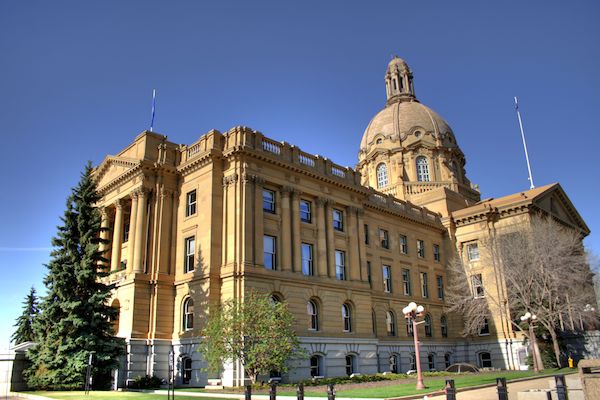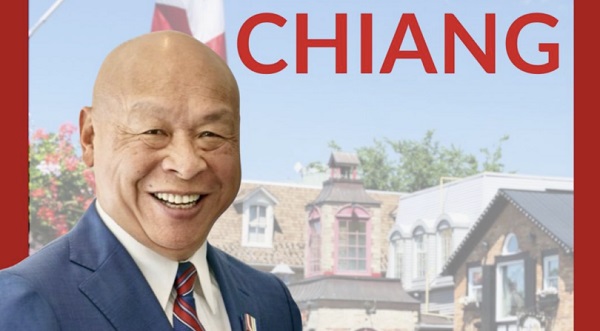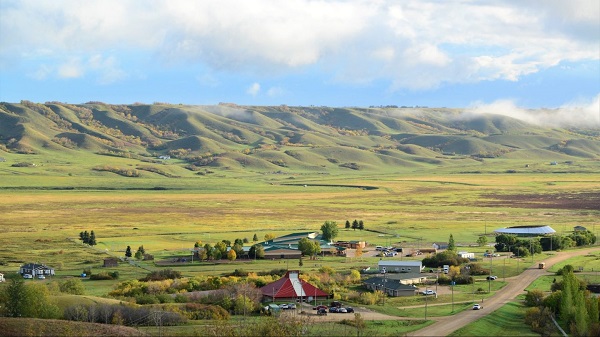Alberta
Province of Alberta offering third dose of Covid-19 vaccine to seniors living in care facilities

Third vaccine doses available Sept. 1
Starting Sept. 1, third doses of COVID-19 vaccine will be available for all seniors living in congregate care facilities and for immunocompromised Albertans.
Alberta’s government has always prioritized the care of our most vulnerable. Alberta was one of the first provinces to offer vaccines to seniors in congregate care facilities and to immunocompromised Albertans.
Receiving a third dose will boost immunity levels and improve protection for all seniors living in congregate care facilities and individuals with compromised immune systems.
In addition, mRNA doses will be made available to Albertans who are travelling to a jurisdiction that does not accept visitors who have been vaccinated with Covishield/AstraZeneca or mixed doses.
“We remain committed to protecting Albertans from COVID-19, and vaccinations are the safest and most effective way to offer this protection. We have always relied on the latest research to guide our decision-making, and now that evidence shows immunocompromised individuals and seniors in congregate care will benefit from getting a third dose, we are pleased to provide them.”
“The data shows that additional doses will offer stronger protection for immunocompromised individuals and older Albertans living in supportive living facilities. Just as we offered these individuals earlier access to COVID-19 vaccines and a shorter four-week interval between doses, we will continue to work to protect all Albertans as new data emerges. However, the best way for us to protect each other is still for as many people as possible to be fully immunized.”
Seniors living in congregate care
Seniors living in congregate care facilities will be eligible to receive their third dose approximately five months after their second dose. Eligible residents will receive their third doses at their facilities.
Immunocompromising conditions
Immunocompromising conditions that qualify for an additional dose at least eight weeks after their second dose include:
- Transplant recipients, including solid organ transplants and hematopoietic stem cell transplants.
- Individuals with chronic kidney disease who are receiving regular dialysis.
- Individuals in active cancer treatment (chemotherapy, immunotherapy or targeted therapies) excluding those receiving only hormonal therapy, radiation therapy or surgery.
- Individuals on certain medications for autoimmune diseases, including rituximab, ocrelizumab and ofatumumab.
Travel vaccinations
Albertans with two valid doses of any vaccine used in Alberta are considered to have received a complete series.
However, some jurisdictions outside of Canada have indicated that they will not accept visitors who have been vaccinated with Covishield/AstraZeneca or mixed doses.
Additional mRNA doses will be made available at least 28 days after a second dose to Albertans who are travelling to a jurisdiction that does not accept visitors who have been vaccinated with Covishield/AstraZeneca or mixed doses.
Quick facts
- There are 118,000 individuals who would be eligible for an additional COVID-19 vaccine dose based on being immunocompromised (approximately 60,000 Albertans) and those living in seniors supportive living (approximately 58,000 Albertans).
- To date, 77.9 per cent of Albertans aged 12-plus have received at least one dose of COVID-19 vaccine and 69.7 per cent have received two doses.
- Immunizations records are available through MyHealth Records. Albertans who are travelling can also use their hard copy record that was provided at the time of vaccination.
Alberta
Big win for Alberta and Canada: Statement from Premier Smith

Premier Danielle Smith issued the following statement on the April 2, 2025 U.S. tariff announcement:
“Today was an important win for Canada and Alberta, as it appears the United States has decided to uphold the majority of the free trade agreement (CUSMA) between our two nations. It also appears this will continue to be the case until after the Canadian federal election has concluded and the newly elected Canadian government is able to renegotiate CUSMA with the U.S. administration.
“This is precisely what I have been advocating for from the U.S. administration for months.
“It means that the majority of goods sold into the United States from Canada will have no tariffs applied to them, including zero per cent tariffs on energy, minerals, agricultural products, uranium, seafood, potash and host of other Canadian goods.
“There is still work to be done, of course. Unfortunately, tariffs previously announced by the United States on Canadian automobiles, steel and aluminum have not been removed. The efforts of premiers and the federal government should therefore shift towards removing or significantly reducing these remaining tariffs as we go forward and ensuring affected workers across Canada are generously supported until the situation is resolved.
“I again call on all involved in our national advocacy efforts to focus on diplomacy and persuasion while avoiding unnecessary escalation. Clearly, this strategy has been the most effective to this point.
“As it appears the worst of this tariff dispute is behind us (though there is still work to be done), it is my sincere hope that we, as Canadians, can abandon the disastrous policies that have made Canada vulnerable to and overly dependent on the United States, fast-track national resource corridors, get out of the way of provincial resource development and turn our country into an independent economic juggernaut and energy superpower.”
Alberta
Energy sector will fuel Alberta economy and Canada’s exports for many years to come

From the Fraser Institute
By any measure, Alberta is an energy powerhouse—within Canada, but also on a global scale. In 2023, it produced 85 per cent of Canada’s oil and three-fifths of the country’s natural gas. Most of Canada’s oil reserves are in Alberta, along with a majority of natural gas reserves. Alberta is the beating heart of the Canadian energy economy. And energy, in turn, accounts for one-quarter of Canada’s international exports.
Consider some key facts about the province’s energy landscape, as noted in the Alberta Energy Regulator’s (AER) 2023 annual report. Oil and natural gas production continued to rise (on a volume basis) in 2023, on the heels of steady increases over the preceding half decade. However, the dollar value of Alberta’s oil and gas production fell in 2023, as the surging prices recorded in 2022 following Russia’s invasion of Ukraine retreated. Capital spending in the province’s energy sector reached $30 billion in 2023, making it the leading driver of private-sector investment. And completion of the Trans Mountain pipeline expansion project has opened new offshore export avenues for Canada’s oil industry and should boost Alberta’s energy production and exports going forward.
In a world striving to address climate change, Alberta’s hydrocarbon-heavy energy sector faces challenges. At some point, the world may start to consume less oil and, later, less natural gas (in absolute terms). But such “peak” consumption hasn’t arrived yet, nor does it appear imminent. While the demand for certain refined petroleum products is trending down in some advanced economies, particularly in Europe, we should take a broader global perspective when assessing energy demand and supply trends.
Looking at the worldwide picture, Goldman Sachs’ 2024 global energy forecast predicts that “oil usage will increase through 2034” thanks to strong demand in emerging markets and growing production of petrochemicals that depend on oil as the principal feedstock. Global demand for natural gas (including LNG) will also continue to increase, particularly since natural gas is the least carbon-intensive fossil fuel and more of it is being traded in the form of liquefied natural gas (LNG).
Against this backdrop, there are reasons to be optimistic about the prospects for Alberta’s energy sector, particularly if the federal government dials back some of the economically destructive energy and climate policies adopted by the last government. According to the AER’s “base case” forecast, overall energy output will expand over the next 10 years. Oilsands output is projected to grow modestly; natural gas production will also rise, in part due to greater demand for Alberta’s upstream gas from LNG operators in British Columbia.
The AER’s forecast also points to a positive trajectory for capital spending across the province’s energy sector. The agency sees annual investment rising from almost $30 billion to $40 billion by 2033. Most of this takes place in the oil and gas industry, but “emerging” energy resources and projects aimed at climate mitigation are expected to represent a bigger slice of energy-related capital spending going forward.
Like many other oil and gas producing jurisdictions, Alberta must navigate the bumpy journey to a lower-carbon future. But the world is set to remain dependent on fossil fuels for decades to come. This suggests the energy sector will continue to underpin not only the Alberta economy but also Canada’s export portfolio for the foreseeable future.
-

 Alberta2 days ago
Alberta2 days agoBig win for Alberta and Canada: Statement from Premier Smith
-

 2025 Federal Election2 days ago
2025 Federal Election2 days ago‘I’m Cautiously Optimistic’: Doug Ford Strongly Recommends Canada ‘Not To Retaliate’ Against Trump’s Tariffs
-

 Catherine Herridge2 days ago
Catherine Herridge2 days agoFBI imposed Hunter Biden laptop ‘gag order’ after employee accidentally confirmed authenticity: report
-

 2025 Federal Election2 days ago
2025 Federal Election2 days agoWEF video shows Mark Carney pushing financial ‘revolution’ based on ‘net zero’ goals
-

 Business2 days ago
Business2 days agoCanada may escape the worst as Trump declares America’s economic independence with Liberation Day tariffs
-

 Business1 day ago
Business1 day agoB.C. Credit Downgrade Signals Deepening Fiscal Trouble
-

 2025 Federal Election2 days ago
2025 Federal Election2 days agoLiberal MP resigns after promoting Chinese government bounty on Conservative rival
-

 Canadian Energy Centre1 day ago
Canadian Energy Centre1 day agoSaskatchewan Indigenous leaders urging need for access to natural gas






